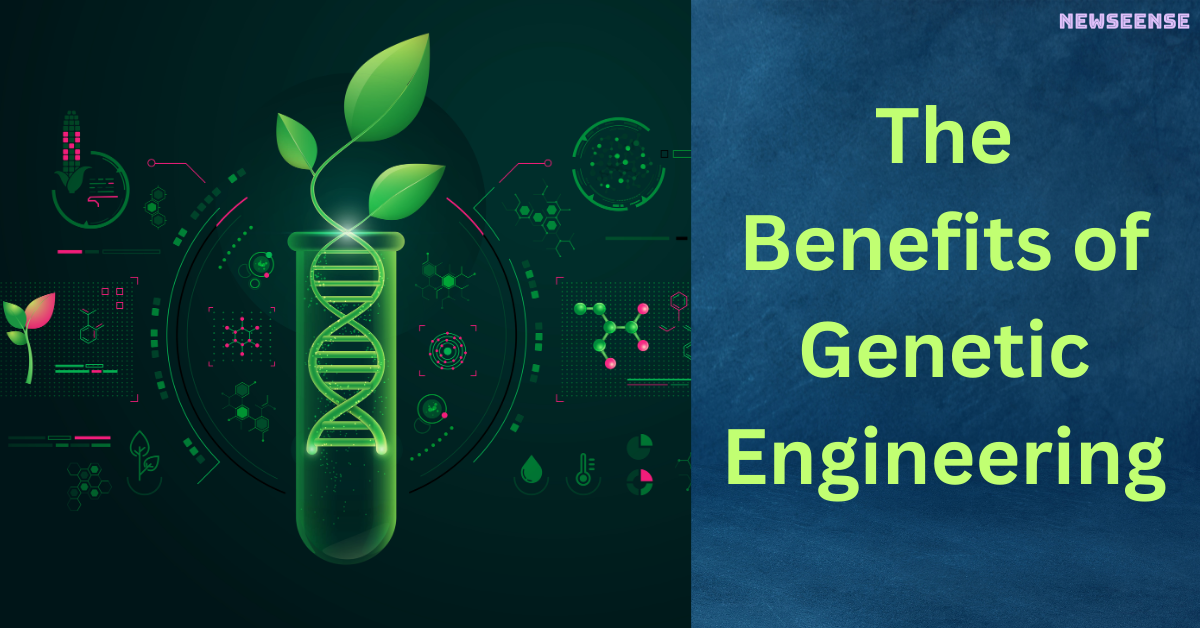
Genetic engineering is a set of technologies that change the genetic makeup of cells and organisms. It has various benefits in human, medical, pharmaceutical, agricultural and other fields. Here are some of the benefits of genetic engineering:
Table of Contents
1. Medical Advancements
Genetic engineering has led to many medical advancements. Gene therapy is one of the most promising benefits of genetic engineering. It is the medical treatment of a disease wherein the defective genes are repaired and replaced or therapeutic genes are introduced to fight the disease. Over the past decade, many autoimmune and heart diseases have been treated using gene therapy. Certain diseases like the Huntington’s disease, ALS and cystic fibrosis are caused by defective genes. There is hope that a cure for such diseases can be found by either inserting the corrected gene or modifying the defective gene. Eventually, the hope is to completely eliminate genetic diseases and also treat non-genetic diseases with appropriate gene therapy.
2. Agriculture
Genetic engineering has revolutionized the agricultural industry. It is used to improve the yields of important economic crops, and provide insect or pest resistance. It has also led to the development of crops that are more resistant to drought and other environmental factors. This has helped farmers to produce more food with fewer resources, which is essential for feeding the growing population.
3. Pharmaceuticals
Thanks to genetic engineering, the pharmaceutical products available today are far superior to their predecessors. These new products are created by cloning certain genes. Some of the prominent examples are the bio-engineered insulin which was earlier obtained from sheep or cows and the human growth hormone which was earlier obtained from cadavers.
4. Environmental Benefits
Genetic engineering has many environmental benefits. It has led to the development of crops that require fewer pesticides and herbicides. This has reduced the amount of chemicals that are released into the environment. Genetic engineering has also led to the development of crops that are more resistant to drought and other environmental factors. This has helped to reduce the amount of water that is used in agriculture.
5. Disease Prevention
Genetic engineering has the potential to prevent many diseases. It can be used to identify individuals who are at risk of developing certain diseases, and take preventive measures to reduce the risk. Genetic engineering can also be used to develop vaccines for diseases that are difficult to treat using traditional methods.
6. Increased Lifespan
Genetic engineering has the potential to increase lifespan. It can be used to identify genes that are associated with longevity, and develop therapies to activate these genes. Genetic engineering can also be used to develop therapies for age-related diseases such as Alzheimer’s disease and Parkinson’s disease.
7. Improved Quality of Life
Genetic engineering has the potential to improve the quality of life for many people. It can be used to develop therapies for diseases that are currently untreatable. It can also be used to develop therapies for diseases that are difficult to treat using traditional methods. Genetic engineering can also be used to develop therapies for age-related diseases such as Alzheimer’s disease and Parkinson’s disease.
In conclusion, genetic engineering has many benefits in human, medical, pharmaceutical, agricultural and other fields. It has led to many medical advancements, revolutionized the agricultural industry, and led to the development of new drugs and therapies for a wide range of diseases. Genetic engineering has many environmental benefits, has the potential to prevent many diseases, increase lifespan, and improve the quality of life for many people. By embracing genetic engineering, we can improve our lives and make the world a better place.
Also read: https://newseense.com/10-captivating-science-facts-that-challenge-the-norm/
- BJP President JP Nadda Issues Notice to Dilip Ghosh Over Controversial Remarks on Mamata Banerjee
- Ram Charan and Kiara Advani’s ‘Jaragandi’ Song from Game Changer Released
- Pre-Match Banter: Rohit Sharma’s Flying Kiss Recreation Adds Spice to MI vs SRH Clash
- Swami Smaranananda Maharaj, President of Ramakrishna Math and Ramakrishna Mission, Passes Away at 95
- Stand-up Comedian Munawar Faruqui Breaks Silence on Social Media After Mumbai Police Detention